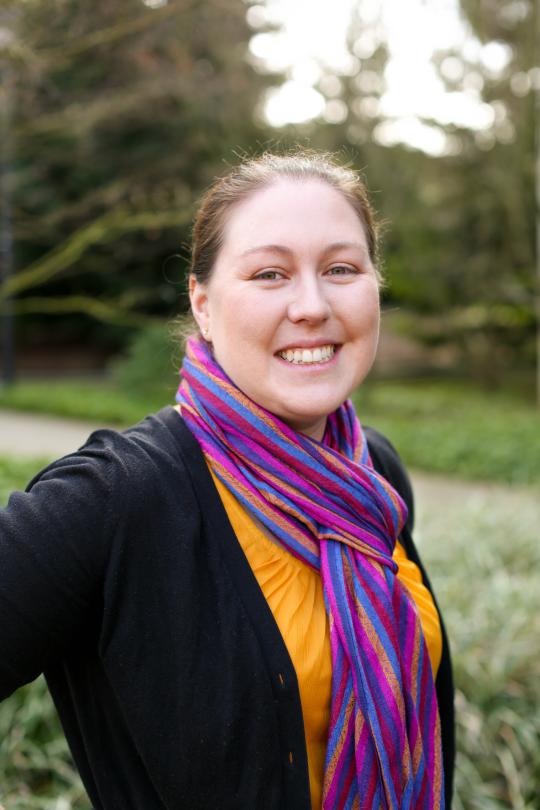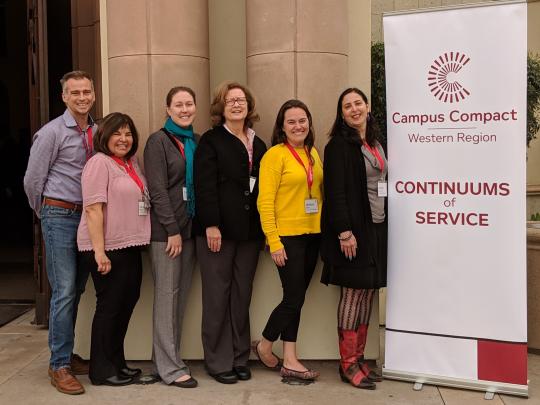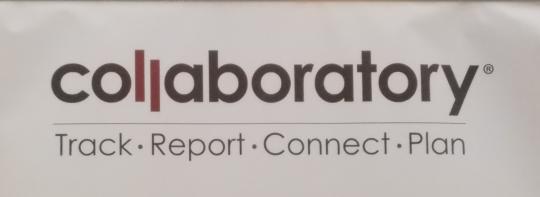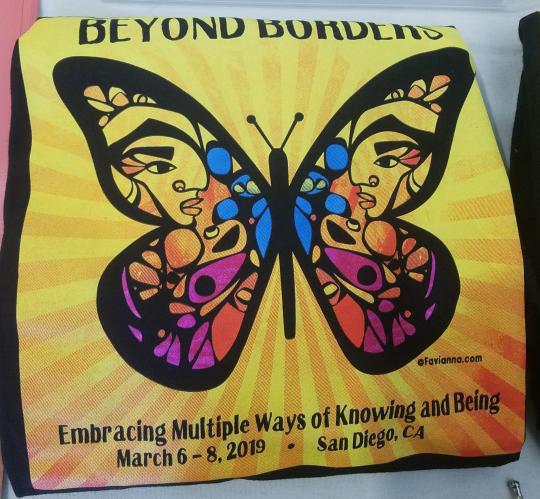Higher Education’s PR Identity Crisis: The Importance of Institution-Wide Data Collection and Communicating About Community Engagement
I participated in a pre-conference session at the Continuums of Service Conference in San Diego organized by Lisa Keyne, Chief Strategy Officer of Collaboratory. Collaboratory is a software that “integrates accurate longitudinal community engagement and public service data.” This session entailed how important data collection is in assessing the real impact that a university is having on its local community.
Related: Service-Learning Case Study in Communication and Media Studies
Barbara Holland, who is a higher education consultant, discussed how higher education can prepare students to help solve the world’s problems and become better world citizens. She talked a little about how higher education has an identity crisis now, given that the conversations about higher ed mostly involve the cost of higher education as opposed to all of the wonderful things that higher ed does for students and the community. Coming from a public relations background, this seems like a PR issue more than anything else. The conversation about higher ed needs to be shifted and changed to show all of the great things that higher ed does for students - not just getting jobs and getting degrees (which is important too). The definition of public relations according to Cutlip, Center, and Broom (2012) is “the management function that identifies, establishes and maintains mutually beneficial relationships between an organization and the various publics on whom its success or failure depends.” Universities should also be creating mutually beneficial relationships with the community around them. This can help change the conversation around higher ed, while also raising the profile of the institution and positively impacting the local community.
Related: The Continuums of Service Conference 2017: On Reflection
Data collection helps to give us an accurate portrayal of the impact of community engagement on student learning, faculty research/teaching productivity, and most importantly the community itself. There is also research that community engagement increases donor and alumni involvement. There are a lot of claims about the “greater good” that higher ed contributes to, but we need to back that up with hard numbers or else we are just making claims based on personal experiences or assumptions, which are not very convincing.
Related: How to Get Published in a Community Engagement Journal
Emily Janke, Director of Institute for Community and Economic Engagement at UNC-Greensboro and Collaboratory Consultant, discussed organizational identity and image management. She said if the administration says that the campus is helping in the community, then there should be support for it and it should be valued, both financially and in the Reappointment, Tenure, and Promotion (RTP) process. In doing so, the university is backing up their core values. It is easy for an institution to say that that support the community, but it is another thing to actually do it by incentivizing this work financially and valuing it in the RTP process. It is important to those who do this type of work, that it is seen as valuable at the institutional level. Several of the speakers mentioned that the administration speaking out that community-based research and service-learning are valued in the RTP process was a big step in the right direction of getting others on board to value this work in the same way. Emily Janke has created three publications to help move these conversations forward on college campuses: Excellence in Community Engagement and Community-Engaged Scholarship; Honoring the Mosiac of Talents and Stewarding the Standards of High Quality Community-Engaged Scholarship; and Aligning Community and University Strengths and Priorities. These booklets are meant to help administrators, faculty, staff, and evaluators in the process of engaging in community-engaged scholarship.
Related: Why Aren’t All Educators Incorporating Service-Learning?
Community engagement is a way of doing teaching, learning, and research-it’s not something “extra” we do-but something that pulls all of the work we do together in a streamlined fashion that benefits faculty, students, and the community. We need to communicate about this work, value this work, and collect data on this work in order to fully show how integral higher education is to the greater good and the community at large.
Related: Welcome, Emily & Susan!

Author: Emily Acosta Lewis







